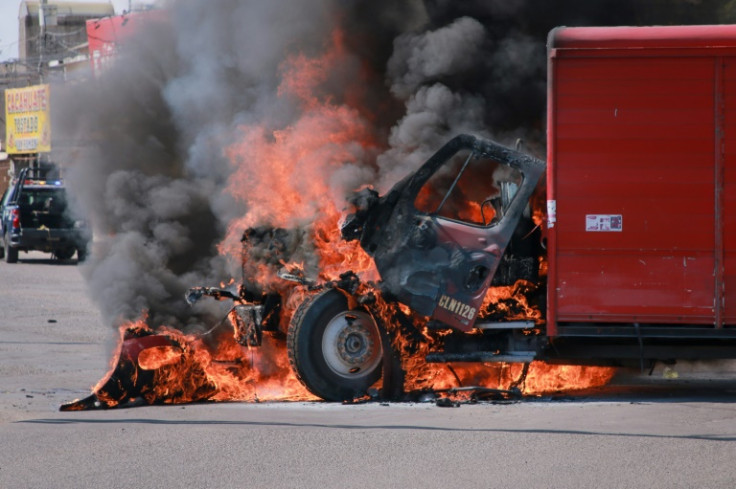
The capture and extradition of Sinaloa Cartel co-founder Ismael "El Mayo" Zambada in late July was hailed as a major strike against fentanyl trafficking in the U.S. However, the move has led to more violence, sparking an all-out war in the region as two ensuing factions fight for control.
The region has experienced a significant rise in homicides, with around 400 deaths reported over the past two months—a 400% increase compared to the same period last year. Culiacan, the state capital, has become especially dangerous at night, with residents staying indoors as armed groups set up roadblocks and engage in shootouts, The Washington Post detailed in a deep-dive piece.
This spike in violence has renewed debate over the U.S. "kingpin strategy," which aims to dismantle cartels by capturing their leaders. Critics argue that while such actions disrupt criminal organizations, they often lead to violent power struggles.
This issue is set to be at the forefront of the U.S. conversation as President-elect Donald Trump has pledged to escalate operations against drug cartels, including hints at military involvement. Incoming Vice President JD Vance has also suggested deploying military forces against cartels.
The Mexican government has expressed frustration over insufficient coordination with Washington regarding Zambada's capture. Former President Andrés Manuel López Obrador attributed the recent violence to U.S. actions, stating, "If we are facing instability and clashes in Sinaloa, it's because of that decision."
However, analysts suggest that the problem goes beyond individual arrests, as crime networks have embedded themselves in Mexico's political and economic systems. Observers point out that López Obrador's emphasis on social programs has not curbed cartel expansion.
Culiacan, a city of one million residents, has long been linked to the Sinaloa cartel. While the cartel once maintained stability through community investment, Zambada's arrest has triggered widespread violence. Reports describe gunmen from rival factions seizing vehicles and battling in the streets, leading to early business closures, school suspensions, and residents seeking safety.
Despite the deployment of over 10,000 troops and numerous arrests, violence persists. Locals like department store manager Guadalupe Gress have voiced their despair. Gress recounted the kidnapping of her son by armed men, illustrating the personal impact of the conflict. Chef Miguel Taniyama noted the economic consequences, having closed two of his restaurants.
In that context, experts argue for a more comprehensive approach that targets cartels' financial networks and middle management, alongside efforts to reduce drug demand.
© 2024 Latin Times. All rights reserved. Do not reproduce without permission.








